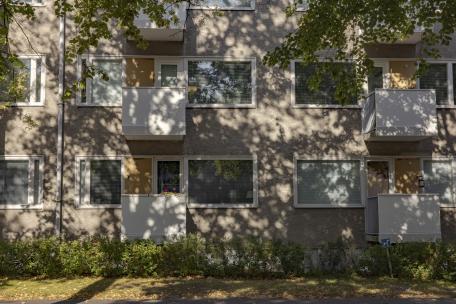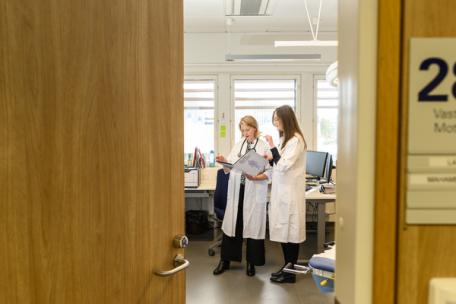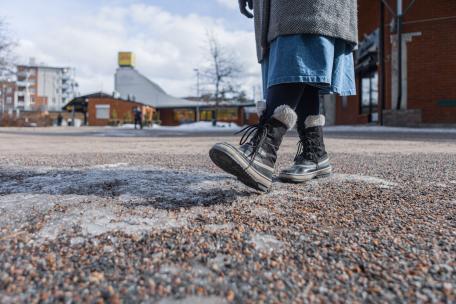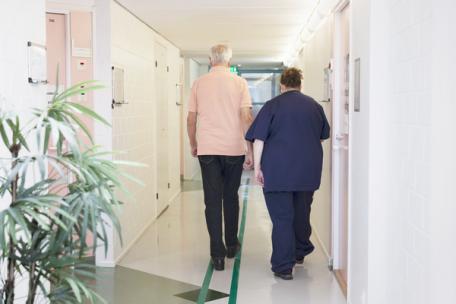Social Services, Health Care and Rescue Services Division
Adaptation and preparedness for extreme weather events
Helsinki’s operational preparedness is at a good level, but adaptation and preparedness require changes in land use planning and construction and decisions on the level of preparedness.
Read more about adaptation and preparedness for extreme weather events ›
Meeting binding targets
The City met a higher proportion of its binding targets than before. 64 per cent of the binding operational targets and 74 per cent of their indicators in the 2024 budget were met.
Read more about the meeting of binding targets ›
The City’s finances
In 2024, expenditure growth exceeded the target set in the strategy. In the previous few years, the target was met. The loan portfolio has decreased, but gross liabilities have increased as a result of loan guarantees issued to Group entities in particular.
Read more about the City's finances ›
Swedish-language health and social services for families with children
In most of the services assessed, Swedish-speaking client families are provided with the same or, in some services, even better service than Finnish-speaking ones. The City purchases Swedish-language services in certain individual child welfare services where it does not have any Swedish-speaking staff.
Read more about Swedish-language health and social services for families with children ›
Reducing homelessness
Helsinki is a pioneer in reducing homelessness. Housing counselling helps to avoid evictions, which have a high financial and human cost. There is still room for improvement in the safety of emergency housing services.
Read more about reducing homelessness ›
Information flow and cooperation between basic education and Child Welfare
Information exchange and cooperation between basic education and the child welfare needs assessment unit have primarily followed the City's guidelines. However, there are many guidelines and they are not clear and consistent in all respects. The consultation practices of pupil welfare and Child Welfare are effective, and staff competence has been developed.
Read more about information flow and cooperation between basic education and Child Welfare ›
Functioning of the service voucher system in primary health care
The use of the service voucher has not significantly contributed to the functioning of primary health care and smooth access to treatment at health stations, as it is only suitable for a small proportion of health station clients, and the availability of the voucher is limited. The service voucher has, however, improved access to treatment at times in certain areas and for individual clients.
Read more about the functioning of the service voucher system in primary health care ›
Access for elderly people from home care to 24-hour care
The access for elderly people in home care to long-term 24-hour care has improved and waiting times have been reduced. The application process may take a long time and client feedback is not collected on its functioning.
Read more about the access of older people in home care to 24-hour care ›
The effectiveness of recommendations
Measures have been taken on 96% of the recommendations presented in the 2022 assessment report.
Read more about the effectiveness of the recommendations of the 2022 assessment report ›
2024ManagementCityEducation DivisionHelsinki City Transport (HKL)Social Services, Health Care and Rescue Services DivisionCity Executive OfficeUrban Environment DivisionCulture and Leisure DivisionService CentreRescue DepartmentConstruction Services (Stara)Financial Management HelsinkiOccupational Health Helsinki
Meeting binding targets
Fifty-eight per cent of the binding operational targets in the 2023 budget and 60% of their indicators were met.
Read more about the achievement of binding targets ›
Attractiveness of libraries and promoting reading
Visitors have found their way back to libraries in 2023 following the coronavirus pandemic, as the number of library visits has increased compared to 2020–2022. Library visits by primary school pupils are extensive, but lower secondary and secondary school pupils and students visit less.
Read more about the attractiveness of libraries and promoting literacy ›
The Social Services, Health Care and Rescue Services Division’s preparedness for incidents and emergencies
The Social Services, Health Care, and Rescue Services Division’s preparations for incidents and emergencies are mainly appropriate, but based on the findings, development work should continue in the future.
Read more about the Social Services, Health Care and Rescue Services Division’s preparedness for incidents and emergencies ›
Preventing drug-related deaths in substance abuse services
The city’s substance abuse services have facilitated access to treatment for people with drug dependencies through many reforms that have improved access to opioid substitution and detoxification treatment. The impact of the reforms on access to other substance abuse services could not be assessed because the reforms have only been in place for a very brief period and comparable statistical data were not available. Services for people suffering from drug dependence can also reduce the harm caused by drug use and improve the amenity and safety of the surrounding area, but facilities are lacking.
Read more about the prevention of drug-related deaths in substance abuse services ›
City advocacy from an economic perspective
The city’s national advocacy has developed with the mayor model over the last two strategic periods.
Read more about the city’s advocacy ›
The effectiveness of recommendations
Action has been taken on 94% of the recommendations from the 2021 assessment report.
Read more about the effectiveness of the recommendations of the 2021 assessment ›
Social guidance for families with children
The City Strategy states that families will be supported in a multidisciplinary way, with resources directed towards early and wide-ranging support. Access to social guidance for families with children has been improved and the service has been expanded and developed. However, the waiting time for the service has increased, and the availability of skilled personnel has decreased.
Read more about social guidance for families with children ›
Maternity and child health services to support families with children
Maternity and child health services aim to meet the individual needs of families. However, families do not always receive specialised support quickly enough, and there is room for improvement in the continuity of care.
Read more about maternity and child health services ›
Achievement of binding targets
Forty-two per cent of the binding operational targets were met. Fifty-eight per cent of the indicators measuring target achievement were met. The coronavirus pandemic still affected meeting targets, especially in the Culture and Leisure Division.
Read more about the achievement of binding targets in 2022. ›
Employee well-being, retention and attraction in senior centres
Senior centres have made efforts to improve employee well-being, retention and attraction, but the indicators show that there is still room for improvement in future.
Read more about employee well-being, retention and attraction in early childhood education and care ›
Access to early-stage mental health services for adults
The city has worked to improve adults’ access to early-stage mental health services, e.g. by training staff and opening more Mieppi low-threshold mental health units. The impact of the new tools introduced through training has yet to translate into faster access to care for clients.
Read more about access to early-stage mental health services for adults ›
Services in Family and Social Services to support the well-being of informal carers
Temporary care for people under 65 during informal care leave does not always meet the needs of different client groups. There are not enough temporary care placements for all client groups.
Read more about the services to support the well-being of informal carers ›
City Executive OfficeFinancial Management HelsinkiCulture and Leisure DivisionOccupational Health HelsinkiService CentreConstruction Services (Stara)Urban Environment DivisionEducation DivisionRescue DepartmentSocial Services and Health Care division
Social Services, Health Care and Rescue Services Division
Helsinki City Transport (HKL)

















